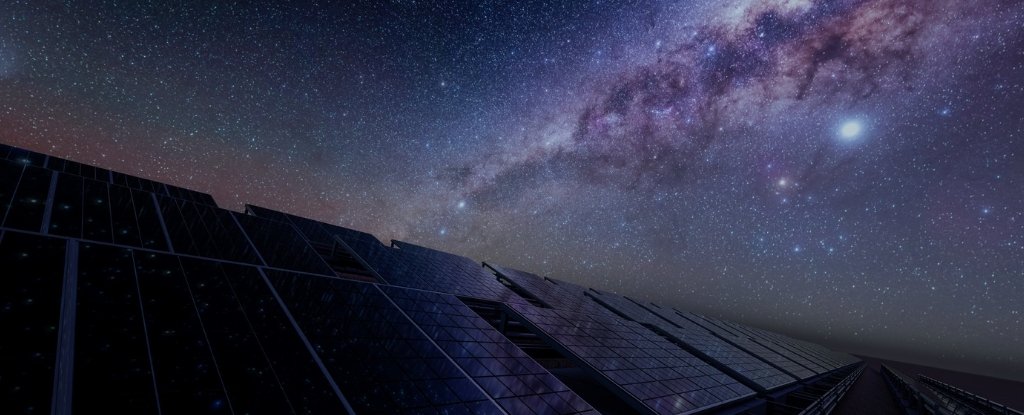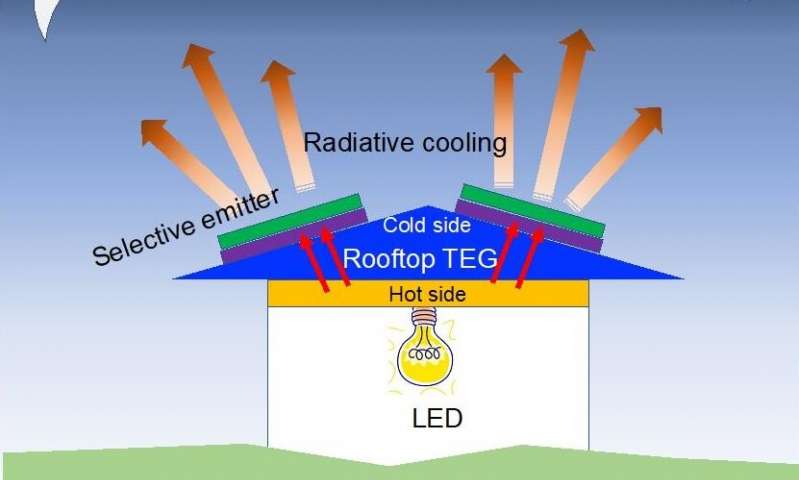
Researchers are resolving the crimps for an 'against sun oriented force' cell, one that can reap vitality at evening, in any event, when the sun isn't sparkling.
Rather than engrossing light from the Sun and changing over it into power, similar to a typical sun oriented board would, this kind of innovation works backward.
Around evening time, when there's no approaching warmth for sun based boards to catch, there's as yet friendly warmth we can utilize. By pointing a warm board up towards the virus sink of room, this warmth starts to transmit outwards as imperceptible infrared light.
This is known as radiative cooling, and if that active warmth can some way or another be bridled, it could efficiently light our urban areas around evening time. Putting away sun based force during the day is a moderately costly recommendation, so legitimately delivering some evening time force could assist with lessening that heap.
Utilizing a thermodynamic model of a thermoelectric force generator, researchers from Stanford College have now worked out a housetop confirmation of-idea that could hypothetically create 2.2 watts per square meter without the requirement for a battery or an outer vitality source
While others have endeavored comparative evening time cells, this specific plan could create multiple times more vitality. Truth be told, it's almost comparable to the exhibition of a Carnot heat motor, which is a hypothetical thermodynamic breaking point for the "great" motor.
"This outcome is altogether higher than the past announced outcomes and focuses to the expected pertinence of gathering electrical force around evening time," the writers compose.
 (Lingling et al., Optics Express, 2020)
(Lingling et al., Optics Express, 2020)
The idea depends on existing innovation that consolidates and improves radiative cooling with a thermoelectric force generator - one that takes up under 1 percent of the entire gadget's impression, which is a decent sign for versatility, as the thermoelectric force generator is the most costly piece of the framework.
Utilizing PC models dependent on genuine boundaries, the creators put their upgraded reenactment under a magnifying glass. Put on a housetop, they guarantee the size of their cell makes the best harmony between heat misfortune and thermoelectric transformation.
"We are attempting to grow superior, supportable lighting age that can give everybody - incorporating those in creating and rustic territories - access to dependable and maintainable ease lighting vitality sources," says electrical architect Lingling Fan from Stanford College.
"A measured vitality source could likewise control off-framework sensors utilized in an assortment of utilizations and be utilized to change over waste warmth from autos into usable force."
Obviously, those down to earth applications are yet to be figured it out. The creators concede that while their exhibition of evening time electrical force age is "astounding", it's as yet insufficient to satisfy a significant number of the wants referenced above; still, an innovation that doesn't depend on the consuming of petroleum products for our vitality needs merits investigating.






No comments:
Post a Comment